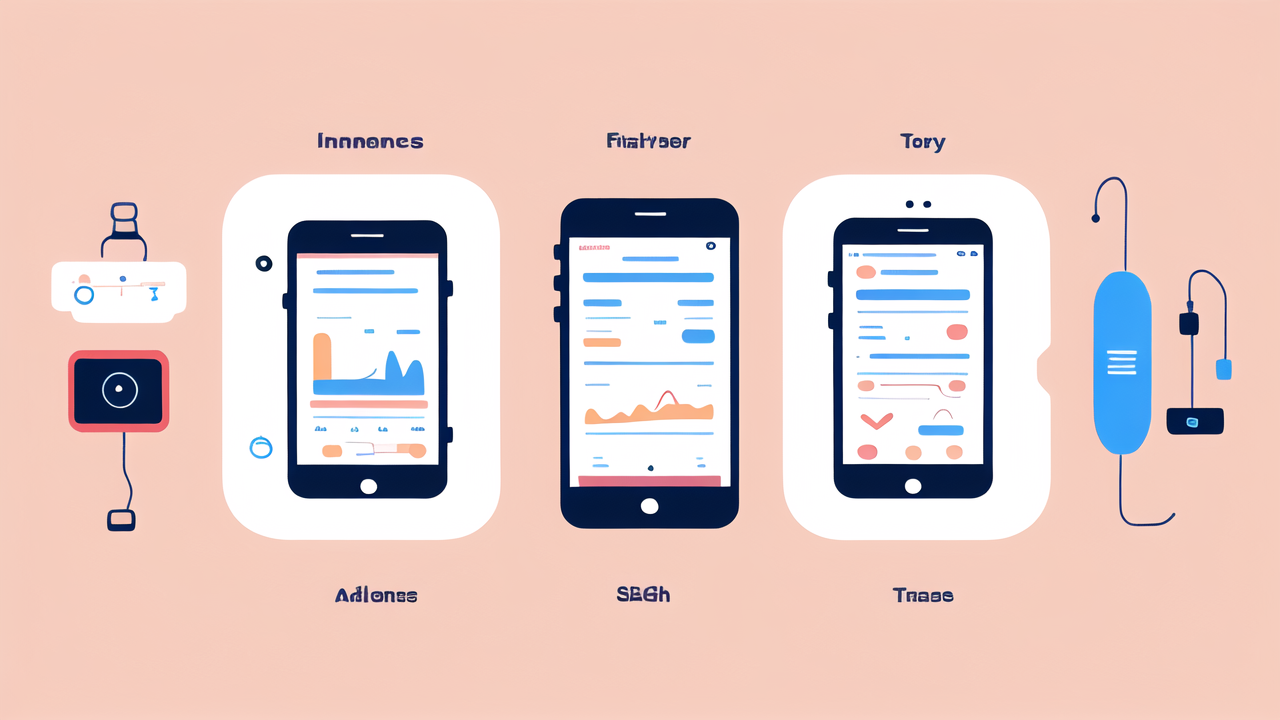Understanding Smart Watches and Their Importance in Fitness Regimens
The Evolution of Smart Watches in the Fitness Industry
Smart watches have come a long way in the fitness world. They started as simple step counters. Now, they're powerful tools for health and fitness. Early models just tracked steps and calories. Today's smart watches do much more. They monitor heart rate, sleep patterns, and even stress levels.

The first fitness trackers were basic and bulky. They often needed separate chest straps for heart rate monitoring. As technology improved, so did the watches. They became sleeker and more user-friendly. Features like GPS and water resistance were added. This made them useful for more types of workouts.
Smart watches now offer real-time feedback during exercise. They can guide users through workouts. Some even provide personalized coaching. The evolution of smart watches has made fitness tracking accessible to everyone. From casual exercisers to serious athletes, there's a watch for every need.
Key Features of High-Quality Smart Watches
High-quality smart watches share several important features. These features make them valuable tools for fitness enthusiasts. Here are some key aspects to look for:
- Accurate heart rate monitoring
- GPS tracking for outdoor activities
- Water resistance for swimming and water sports
- Long battery life
- Customizable workout modes
- Sleep tracking capabilities
- Stress monitoring and management tools
- Compatibility with popular fitness apps
A good smart watch should have a clear, easy-to-read display. It should be comfortable to wear all day. Durability is also important. The watch should withstand the rigors of regular workouts. Advanced models may include features like ECG monitoring or blood oxygen level tracking.
Data accuracy is crucial. The best smart watches provide reliable measurements. This helps users track their progress effectively. They should also offer easy-to-understand insights. This helps users make informed decisions about their fitness routines.
The Top Smart Watches for Fitness Enthusiasts in the United States
Analyzing Popular Smart Watches for Fitness Monitoring
Several smart watches stand out in the U.S. market for fitness monitoring. Here's a look at some top contenders:

- Apple Watch Series 7: Known for its large display and robust health features.
- Garmin Fenix 7: Popular among serious athletes for its advanced training metrics.
- Fitbit Sense: Offers stress management tools and a focus on overall wellness.
- Samsung Galaxy Watch 4: Features body composition analysis and a sleek design.
- Polar Vantage V2: Provides detailed recovery tracking for intense training.
Each of these watches has unique strengths. The Apple Watch excels in general health monitoring. It's great for casual users and fitness enthusiasts alike. The Garmin Fenix 7 is a favorite for outdoor activities. It offers excellent battery life and rugged design.
Fitbit Sense stands out for its stress management features. It's ideal for those focusing on overall well-being. Samsung's Galaxy Watch 4 brings body composition analysis to the wrist. This is useful for tracking muscle mass and body fat percentage. The Polar Vantage V2 is perfect for serious athletes. It provides in-depth training and recovery insights.
How to Choose a Smart Watch That Fits Your Fitness Goals
Choosing the right smart watch depends on your specific fitness goals. Here are some tips to help you decide:
- Define your primary activities: Running, swimming, cycling, etc.
- Consider your fitness level: Beginner, intermediate, or advanced.
- Think about additional health features you need: Sleep tracking, stress monitoring, etc.
- Check battery life: Ensure it meets your usage patterns.
- Look at app compatibility: Make sure it works with your favorite fitness apps.
- Consider design and comfort: You'll be wearing it often, so it should feel good.
- Set a budget: Smart watches range from budget-friendly to high-end.
If you're a runner, look for a watch with accurate GPS and advanced running metrics. Swimmers should prioritize water resistance and swim tracking features. For gym-goers, strength training modes and rep counting can be helpful.
Beginners might prefer a user-friendly interface with guided workouts. Advanced athletes may want more detailed data analysis. Consider whether you need features like mobile payments or music storage. These can be convenient for workouts.
Advanced Technologies and Their Impact on Fitness Regimens
Innovations in Smart Watch Features for Fitness Monitoring
Smart watch technology is constantly evolving. New features are changing how we approach fitness. Here are some exciting innovations:

- ECG monitoring: Helps detect irregular heart rhythms.
- Blood oxygen monitoring: Useful for altitude training and overall health.
- Stress tracking: Measures stress levels and suggests relaxation techniques.
- Sleep stage analysis: Provides detailed insights into sleep quality.
- Body temperature tracking: Can help detect illness or track menstrual cycles.
- Fall detection: Important for safety during solo workouts.
- Voice assistants: Allow hands-free control during exercise.
These features go beyond basic fitness tracking. They offer a more holistic view of health. ECG and blood oxygen monitoring were once only available in medical settings. Now, they're on your wrist. This can help users spot potential health issues early.
Stress tracking helps users understand their mental well-being. It can guide them to better manage stress through exercise. Sleep analysis helps optimize recovery. This is crucial for fitness progress. Body temperature tracking can aid in illness detection. It's also useful for women tracking their cycles.
The Future of Fitness: Smart Watches and Body Composition Analyzing Tools
The future of smart watches in fitness looks promising. Body composition analysis is a growing trend. Some watches can now measure metrics like body fat percentage and muscle mass. This was once only possible with specialized equipment.
Future smart watches may include more advanced sensors. These could measure hydration levels or even blood glucose. This would be particularly useful for athletes and diabetics. We might see integration with other fitness devices. For example, smart watches could connect with smart gym equipment.
Artificial intelligence will play a bigger role. Watches may offer more personalized fitness advice. They could adapt workout plans based on your progress and recovery. Virtual coaching through smart watches may become more sophisticated. This could make personal training more accessible.
Data privacy and security will be important as smart watches collect more health data. Manufacturers will need to prioritize protecting user information. As technology advances, smart watches will likely become even more integral to fitness routines. They'll continue to bridge the gap between casual exercise and professional sports training.




Leave a comment
This site is protected by hCaptcha and the hCaptcha Privacy Policy and Terms of Service apply.